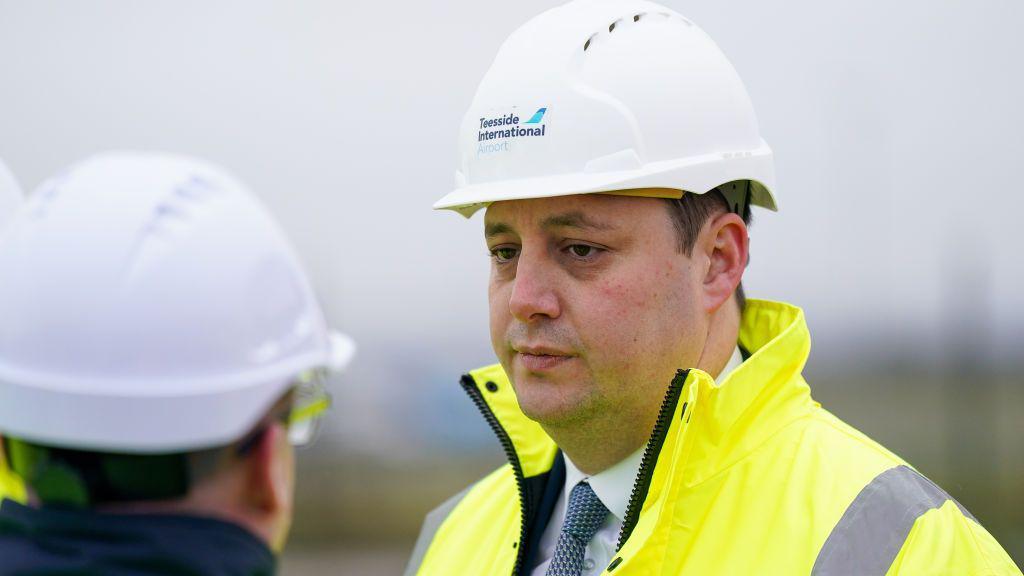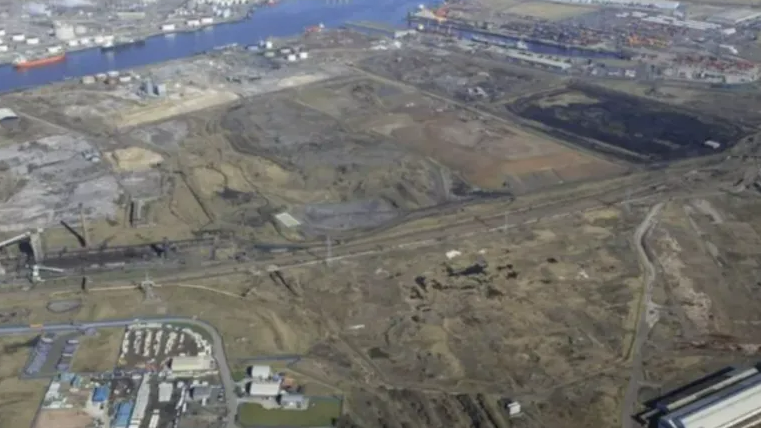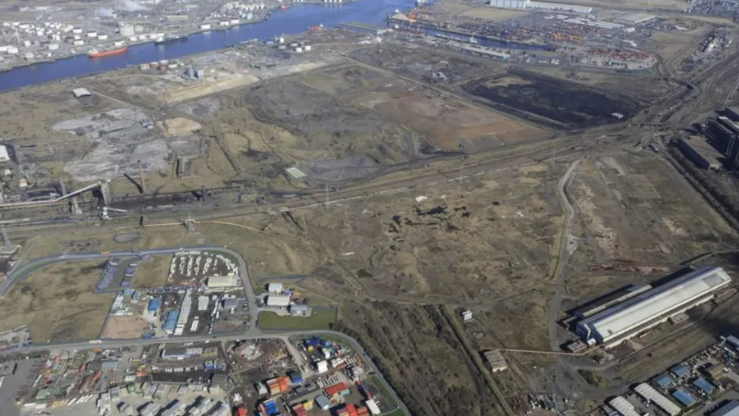Deluge of questions prompts authority protocol change

Conservative Tees Valley mayor Ben Houchen, leader of the Tees Valley Combined Authority, has faced intense scrutiny
- Published
A combined authority has changed its protocols over how it accepts questions for meetings, after being deluged with queries from the public.
Officers at the Tees Valley Combined Authority (TVCA) have reportedly been "working through the night" to address correspondence.
TVCA, headed by Tees Valley mayor Ben Houchen, has faced significant scrutiny over its involvement in the regeneration of Redcar's historic steelworks site, Teesworks.
A spokesman said a revision - which now requires three working days notice instead of two - was due to the time needed to answer "a large volume" of questions with existing resources.
He said the authority had recently received more than 140 questions in one month, the equivalent of about four a day and an increased workload for staff.
There was no requirement to consult on the change, he added.

The regeneration of the former Redcar steelworks aims of create thousands of jobs
The influx follows the publication of an independent review commissioned by Levelling Up Secretary Michael Gove into allegations of corruption at Teesworks, which found no evidence of illegality.
However, 28 recommendations were made around issues including transparency and value for money.
TVCA accepted the recommendations and is working on implementing them.
'Unacceptable burden'
The South Tees Development Corporation, which is part of TVCA, has strategic responsibility for the economic regeneration of the massive industrial site.
At a recent meeting of its board, an influx of correspondence was highlighted.
Legal manager and monitoring officer Emma Simson said officers worked through the night in advance of the meeting to address 51 questions submitted ahead of it, many of which concerned Teesworks and related matters.
Ms Simson described it as "quite some effort" and said staff had faced an "unacceptable burden" in attempting to respond within a 48-hour time frame.
In an email to the Local Democracy Reporting Service, she added: "To manage the welfare of our staff, guidance was introduced to allow additional time for staff to answer questions appropriately, whilst maintaining public participation.”
'No consultation'
A number of questions came from Teesside Resistance, an informal group whose members oppose Lord Houchen, a Conservative peer.
Ray Casey, from the group, said there had been no consultation over the change in protocol.
He said follow-up questions the group had submitted had been ignored, while “simple” questions had been directed to the Freedom of Information process.
Mr Casey said: “As time has gone on their willingness to answer questions has got worse.”
He said the public could not ask questions during meetings and claimed the bar was as “low as it could possibly go” in terms of public engagement and accountability.
The TVCA spokesman said the organisation was "well ahead" of most local councils in its provision of timely responses and engagement with public questions.
He said a revision to protocol was required due to the extensive time needed to answer "a large volume" of questions with existing resources, adding there was no requirement to consult on the change.
Follow BBC Tees on X (formerly Twitter), external, Facebook, external and Instagram, external. Send your story ideas to northeastandcumbria@bbc.co.uk.
Related topics
More stories from BBC North East and Cumbria
- Published29 January 2024
